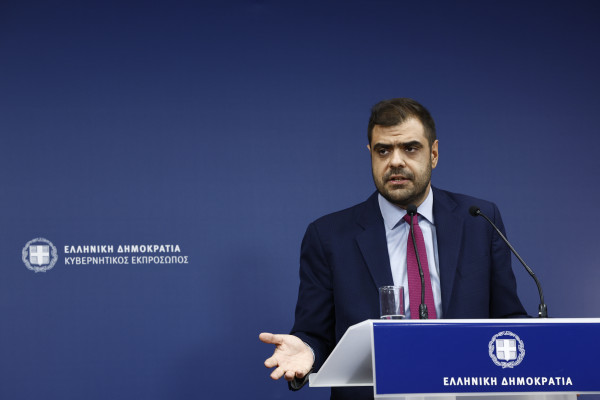Greece’s defense procurement policies are set to come under scrutiny in an upcoming parliamentary debate scheduled for March 27. The discussion will focus on the country’s long-term military spending and the extent to which the government has adhered to existing legal frameworks—particularly Law 4782/2021, which it passed four years ago to bring structure and transparency to the procurement process. This legislation replaced the previous regulatory framework established in 2010 and introduced two key mechanisms: the Long-Term Defense Procurement Program (LTDPP) and the Rolling Military Equipment Procurement Program (RMEPP).
The LTDPP was designed as a 12-year strategic plan, updated every three years, outlining Greece’s military equipment needs and providing a financial roadmap for their acquisition. The RMEPP, a four-year program revised annually, was meant to adjust defense spending in response to budgetary constraints and the operational needs of the armed forces. Together, these frameworks were supposed to ensure that procurement decisions were made within a clear institutional structure, prioritizing needs, balancing costs, and maintaining fiscal responsibility. However, four years after their introduction, neither plan has been officially approved. In their absence, Greece has moved forward with defense contracts totaling approximately €16 billion, raising concerns about transparency and accountability.
A significant portion of these contracts has been awarded through direct procurement rather than competitive bidding. While such emergency purchases can sometimes be justified for national security reasons, bypassing open competition often results in higher costs and reduced negotiating leverage. Moreover, while government-to-government (G2G) deals are typically considered a safer option for securing military assets, many of Greece’s recent purchases have involved intermediaries, calling into question whether these agreements are truly intergovernmental in nature.
The distribution of defense spending has also sparked debate. Between 2019 and 2022, Greece allocated roughly €12.5 billion to procurement from France, the United States, and Israel, while its domestic defense industry received only €69 million in contracts. This disparity has fueled concerns that Greece is failing to support its own military production sector, a situation that threatens its long-term sustainability. A strong domestic defense industry is not just a matter of economic policy but a strategic necessity, ensuring self-sufficiency and reducing reliance on foreign suppliers. Instead, the bulk of Greece’s military expenditures have flowed abroad, raising questions about whether the country is prioritizing short-term acquisitions over long-term capability-building.
The upcoming parliamentary discussion is expected to shine a spotlight on these issues, particularly the government’s failure to implement the planning frameworks it legislated. Without the LTDPP and RMEPP in place, military procurement decisions have been made in a largely ad hoc manner, lacking a publicly documented strategy and the necessary parliamentary oversight. This has allowed procurement to be shaped more by political priorities and external pressures than by a structured, long-term vision for Greece’s defense needs.
The biggest winners in this situation are the defense contractors who have secured lucrative deals without facing competition, allowing them to set higher prices with fewer constraints. Foreign suppliers and governments that have benefited from Greece’s defense spending have also had little incentive to encourage reforms that would introduce greater transparency and competitiveness. Additionally, intermediaries—often a controversial presence in arms deals—have gained a more prominent role in negotiations, taking advantage of the lack of institutional checks and balances.
Meanwhile, Greece’s armed forces have been placed at a disadvantage. Without a structured procurement framework, there is no clear mechanism to ensure that the most pressing defense needs are prioritized, nor is there a reliable way to measure whether contracts are delivering the best value for money. Instead of a carefully planned and predictable investment in military readiness, procurement has taken place in a reactive and fragmented manner. This lack of long-term planning could ultimately weaken Greece’s strategic position, despite the country’s substantial defense spending.
The Greek economy is another casualty of this unstructured approach. Billions of euros that could have been invested in strengthening the domestic defense industry and creating high-skilled jobs have instead been sent overseas. A well-supported domestic defense sector could have enhanced Greece’s industrial capabilities, contributed to technological advancements, and even positioned the country as a defense exporter within the broader European and NATO landscape. Instead, local industry has been left with a minimal share of the procurement budget, stifling its potential growth.
Greek taxpayers are left to bear the financial burden. With large-scale procurements being made outside the framework of the LTDPP and RMEPP, there is little assurance that public funds are being spent efficiently. Overpriced contracts, a lack of competitive bidding, and last-minute procurement decisions could lead to unnecessary financial strain, reducing funds available for other critical areas such as infrastructure, healthcare, and education.





























